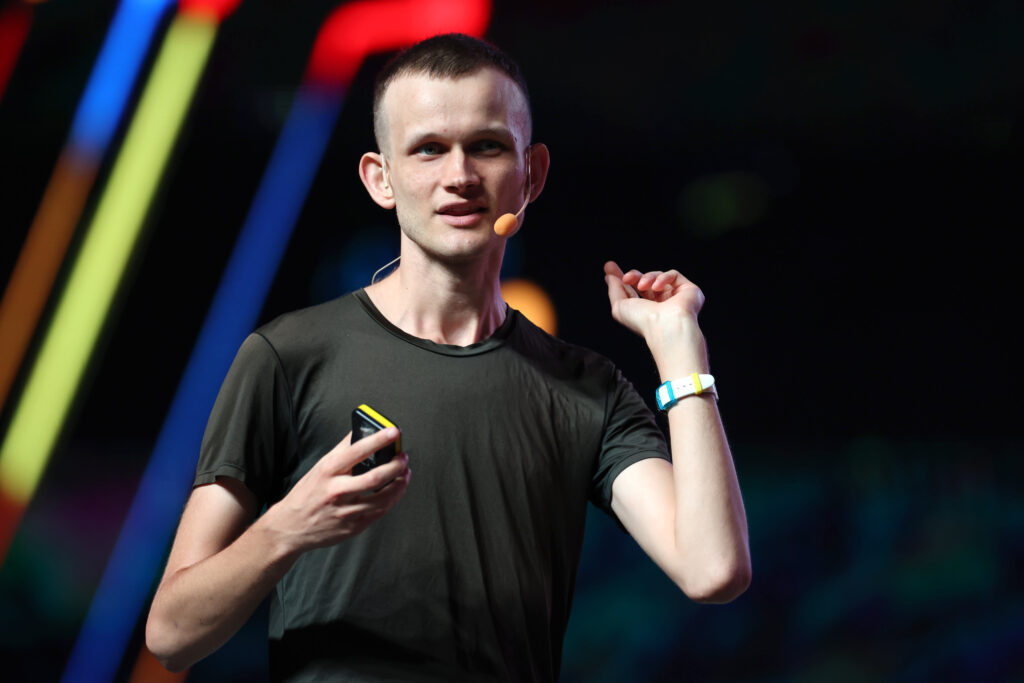Vitalik Buterin analyzes Ethereum’s governance and Bitcoin’s future amid block size debates, advocating inclusive innovation.
The co-founder of Ethereum, Vitalik Buterin, has offered a thorough analysis of the Bitcoin block size wars, a notable dispute that occurred within the community between 2015 and 2017. The main discussion topic was whether Bitcoin’s block size limit should be raised from 1 MB to support more transactions, lower costs, and improve its usefulness as a payment system.
Vitalik Buterin initially sided with the “big blockers,” having personally witnessed the block size dispute. This faction promoted more giant blocks to maintain low transaction costs and preserve Bitcoin’s status as a virtual currency. According to their argument, the initial purpose of Bitcoin, as stated in its whitepaper, was to function as a peer-to-peer electronic cash system. Large opponents felt that the block size needed to be increased to keep excessive fees from weakening this use case. They also cited the writings of Satoshi Nakamoto, who proposed that more complex forks to introduce block size increases and streamlined payment verification gradually may be used to handle larger blocks.
On the other hand, the “small blockers” prioritized the security and decentralization of Bitcoin. They contended that more giant blocks would increase the expense and difficulty of running nodes for individual users, thus centralizing control within a few powerful corporations. Small blockers were worried that the stability and governance model of Bitcoin could be compromised by frequent and significant protocol modifications, mainly through hard forks. They thought that instead of concentrating on becoming a payment system, Bitcoin should continue to be a decentralized store of value, similar to digital gold.
Vitalik Buterin’s reflections show a sophisticated comprehension of both viewpoints. Although he agreed that larger blocks were necessary to maintain low fees, he noted that huge blockers frequently needed more technical know-how to execute their ideas successfully. He chastised the significant blockers for failing to reach a consensus on reasonable upper bounds on block size increases and for their technical errors, including the botched implementations of the Bitcoin Classic and Bitcoin Unlimited projects. Due to their poorly thought-out implementations and security flaws, these projects ultimately ruined the massive block movement.
However, Vitalik Buterin thought the small blockers’ approach to protocol modifications and governance was unduly conservative. Their inflexible opposition to hard forks and their preference for soft forks, which he thought were unduly complicated, upset him. He further accused the small blockers of suppressing free speech in the neighborhood by excluding opposing viewpoints and allegedly censoring social media.
Vitalik Buterin emphasized a recurrent problem in political and organizational conflicts when evaluating the long-term effects: the “one-sided competence trap,” in which one party monopolizes competence but neglects to consider broader viewpoints. This dynamic in the blocksize dispute obstructs productive communication and advancement. Buterin said, “Smart people want to work with other smart people,” highlighting the significance of inclusive and balanced strategies to prevent such pitfalls.
Vitalik Buterin also criticized the debates’ lack of technological vision, highlighting that zero-knowledge proofs (ZK-SNARKs), which might have provided scalable solutions, should have been discussed. He argued that new technology, not compromise, is the ultimate solution to political tension and urged further innovation to solve scalability and governance issues.
Vitalik Buterin reflected on the evolution of Ethereum, pointing out that the platform’s focus on client variety and scalable layer two solutions was influenced by lessons learned from Bitcoin’s block size disputes. He underlined that it is critical to draw lessons from previous wars to create more robust and diverse digital communities. In his conclusion, He emphasized the need for inclusive governance and technological innovation, saying that Ethereum’s explicit goal to promote a pluralistic ecosystem is essentially an attempt to avoid one-sided competency traps.
Buterin’s viewpoint draws attention to the block size war’s broader effects on the cryptocurrency community. He interprets it as a warning against the perils of one-sided competence traps, in which a group monopolizes technical know-how yet advances a limited agenda. At the same time, the other side cannot acquire the abilities needed to carry out its plan. He contends that this dynamic can result in internal strife and stagnation.
Vitalik Buterin thinks that adopting new technologies that can satisfy the interests of both parties will ultimately lead to resolving these kinds of disputes. He suggests that the development of ZK-SNARKs and other scalability techniques could be used to balance the requirement for low costs with the necessity of preserving decentralization. Buterin thinks the crypto community can get past contentious discussions and move toward more inclusive and valuable solutions by concentrating on technological innovation.
Buterin highlights the significance of striking a balance between decentralization, technical proficiency, and creative solutions in developing crypto ecosystems in his thoughts on the Bitcoin block size disputes. His observations offer a fascinating prism to see the intricacies of Bitcoin’s origins and the current difficulties that digital currencies face.
